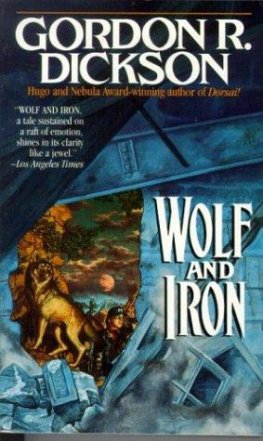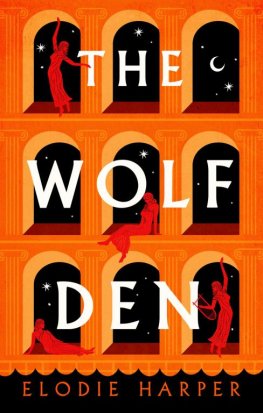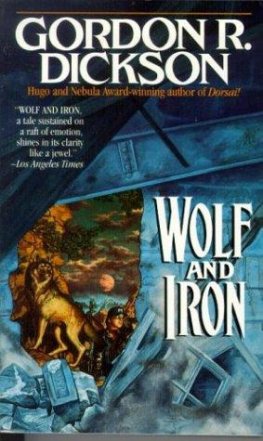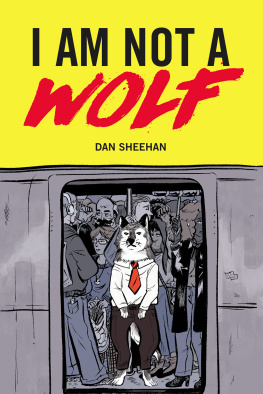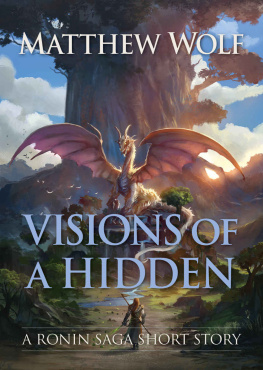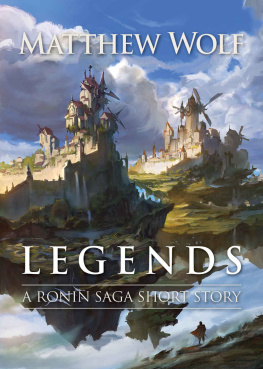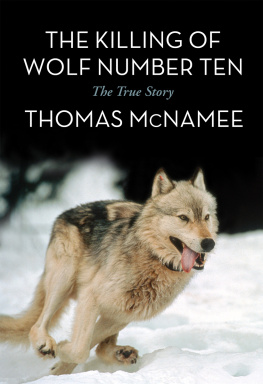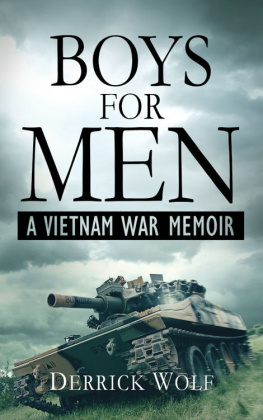Gordon R. Dickson
WOLF AND IRON
This book is dedicated to Harry Frank and Martha Frank, without whom I could never have hoped it to be what it is.
Chris Clayton
Juanita Coulson
John FentrissDalhousie University, Halifax, Nova Scotia
Harry FrankUniversity of Michigan-Flint
Michael Longcor
Peter McLeodUniversity of British Columbia, Vancouver, Canada
John Miesel
Sandra Miesel
Kenneth S. NorrisUniversity of California-Santa Cruz
Anne PassovoyChicago, Illinois
Robert D. PassovoyChicago, Illinois
Irene PepperbergNorthwestern University, Evanston, Illinois, Department of Anthropology
Edward O. PriceUniversity of California-Davis
I cant remember when I first read something by Gordon Dickson. Every now and then (usually when the basement floods and I have to move my paperbacks to high ground) I thumb through an old issue of Galaxy or Astounding and run across a story that I remember clearly and with fondness and discover that Gordon Dickson wrote it. I guess you go from reading a particular author to being a reader of that author when you begin to look for his books and stories. That happened over twenty-five years ago.
But if I cant say when I began reading Dicksons work, I certainly know why I have continued to do so. First, hes a dandy storyteller. Even in the mid-1960s, the Dark Ages when a lot of first-rate science-fiction writers produced a lot of second-rate imitations of avant-garde mainstream literature, you could count on Dickson for good, basic storytelling. Stuff with a beginning, a middle, and an end in plausible settings with characters youd like to meet.
Secondly, the science in Dicksons work is often behavioral science rather than physical science. This is not to say that his futuristic novels lack the usual trappings of hyperspace travel, disintegration beams, and the like, but these are mere technological furnishings. He never bothers the reader with tiresome lectures about how they actually work, and I cant remember a single plot that depended on curious properties of neutron stars or the paradoxes of faster-than-light travel. Its not that I dont enjoy these plots. Asimov and Niven do it splendidly, and I enjoy it very muchbut I dont know enough about physical science to appreciate it.
Also, I freely admit to a behavioral scientists bias in such matters: I spend less time wondering about how were going to get to the stars than I spend wondering about what well do when we get there.
I not only find it congenial that Dickson looks to behavioral science for the hook in many of his plots, but also that he does so with scrupulous integrity. He doesnt take liberties with the meaning of a scientific concept just to exploit its current popular appeal. None but Man, for example, is less a science-fiction novel than it is a parable about the clash of cultures. It illustrates far better than many cultural-anthropology texts the role that culture plays in equipping us with glasses through which we interpret reality, and how difficult it is to realize that others with other values, or glasses, can view the world differently but with perfect validity.
Similarly, the solution to the problem confronting the central character in The Alien Way was ultimately resolved by recognizing that different evolutionary pathwayseven if they lead to similar end productscan leave very different instinctual residues. Indeed, Dickson hung the plot on the characters recollection of work reported by Peter Krott in Natural History magazine on foraging patterns in bears. The research was reported faithfully, the pivotal connection with the plot was plausible, and even the citation was accurate.
Consequently it was with more than my usual sense of anticipation that I settled back to read the title story in the Dickson anthology In Iron Years. The cover illustration showed a man carrying something vaguely similar to the Finnish version of the AK-47 assault rifle and accompanied by a rather medieval, but recognizable representation of a wolf. I had worked with wolves and compared wolf and dog social behavior for several years and looked forward to seeing how Dickson would weave into his plot the complex subtleties Id found to be so elusive and fascinating. When I finished the story, I was not merely disappointedI was downright angry. Dickson had given his reader nothing but an overgrown dog wrapped in wolfs clothing!
Exit the reader; enter the pedagogue. The setting in one of Dicksons novels had described enough of the local landscape and downtown area for me to surmise that the locale was his own hometown. With nothing more to go on, I called information and, to my surprise, was given a listed telephone number for one Gordon R. Dickson. I called, spoke to one of his assistants, left my namecomplete with academic affiliation, which I thought might pique his interestand to my surprise got a return call in less than an hour.
Exit the pedagogue; enter the reader. I dont recall much of our conversation. I only remember how congenial and self-effacing and gracious was the person on the other end of the line. I sent him a few reprints of some of my early wolf-research papers, casually dropped his name for a few days with students and colleagues I knew were science-fiction readers, and promptly filed the conversation away under interesting people Ive met.
A few years later I received another telephone call. Gordon told me that he was expanding In Iron Years into a novel and wondered if I would be willing to read the passages describing wolf behavior and check them over for authenticity. I promptly agreed, and so began my role as Gordon Dicksons wolf consultant.
I was flattered, and I looked forward to the satisfaction of contributing even in a minor way to a work by a favorite author. Gordon doesnt know it, but most of my colleagues I told about the project were very dubious. I wont catalog the list of pitfalls they envisioned for me. I dont really remember themI only recall that they were pretty gloomy. But I thought it would be great fun. They were wrong. I was right.
In retrospect, I can see all sorts of problems that might have cropped up and made the project a painful chore. That it turned out to beas I had blithely expectedgreat fun was because Gordon is the person he is. I dont mean this to sound condescendingbut he is the sort of student every teacher hopes for. He is interested in everything, immerses himself in technical and theoretical details, asks questions that I have to think about for several days, and comes out of the whole thing with a sure and confident grip on essentials. It is fortunate for his fans that he made fiction his lifes work. But if he had not done so, I feel certain that he would have had an equally illustrious career in any of the sciences.
John Le Carre said that authenticity is less important than plausibility. For Gordon, authenticity is the way to achieve plausibility, and its not just a means to an end. Its a passion. It was not sufficient that he understand enough about certain aspects of wolf behavior to ensure that these were presented faithfully. He had to know everything about wolf behavior. He not only read books and papers I recommended, but questioned me about them to be certain he had understood them properly. And he went way beyond the books I recommended. He went way beyond what I could tell him with any firsthand confidence and sent me scurrying to the telephone to call friends and colleagues who had more experience with wolf behavior in the wild, who knew someone who knew someone who had once reported on wolves interacting with horses, with bears
On other questions, I sent him to the telephone armed only with the name of someone I knew slightly (or not at all, save by reputation) who could tell him everything he might ever want to know about, say, the dietary habits of grizzly bears in Montana.

